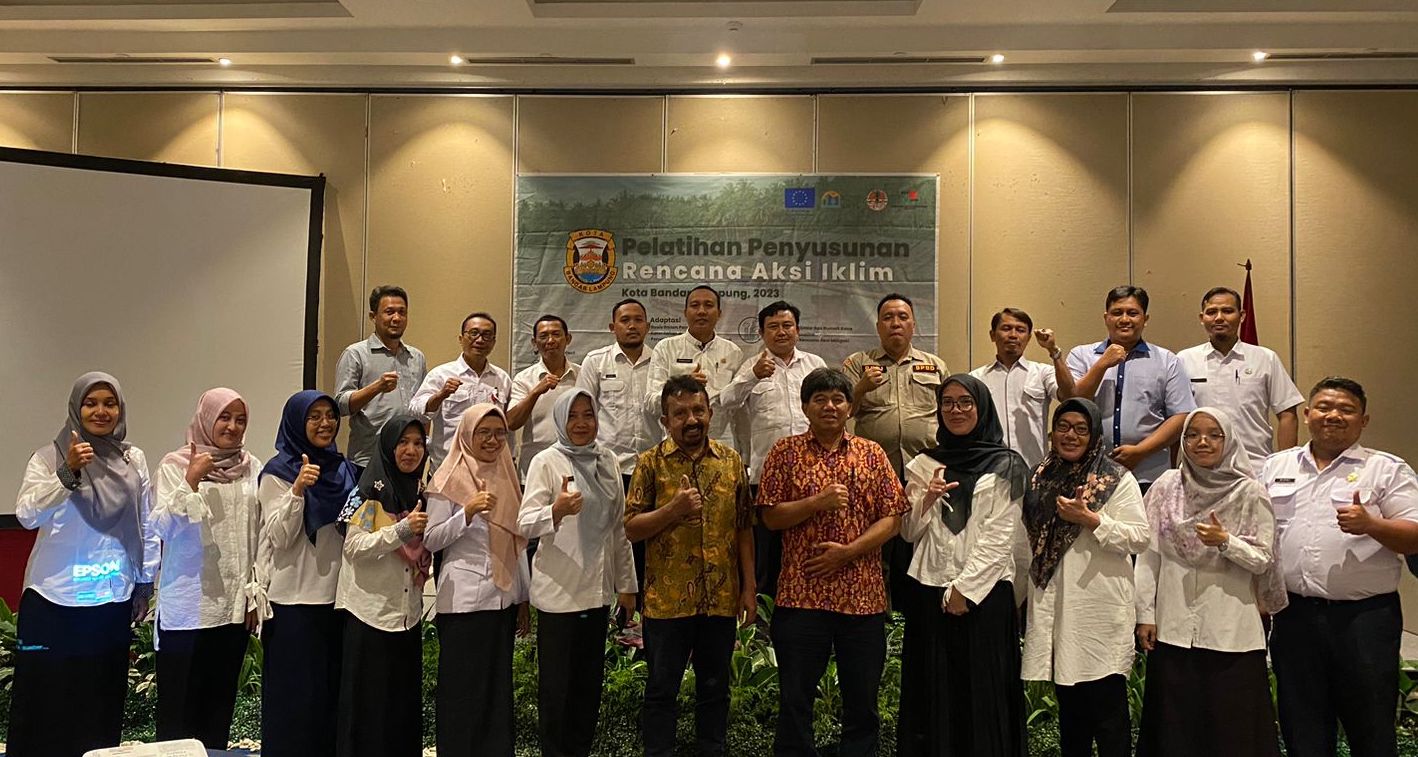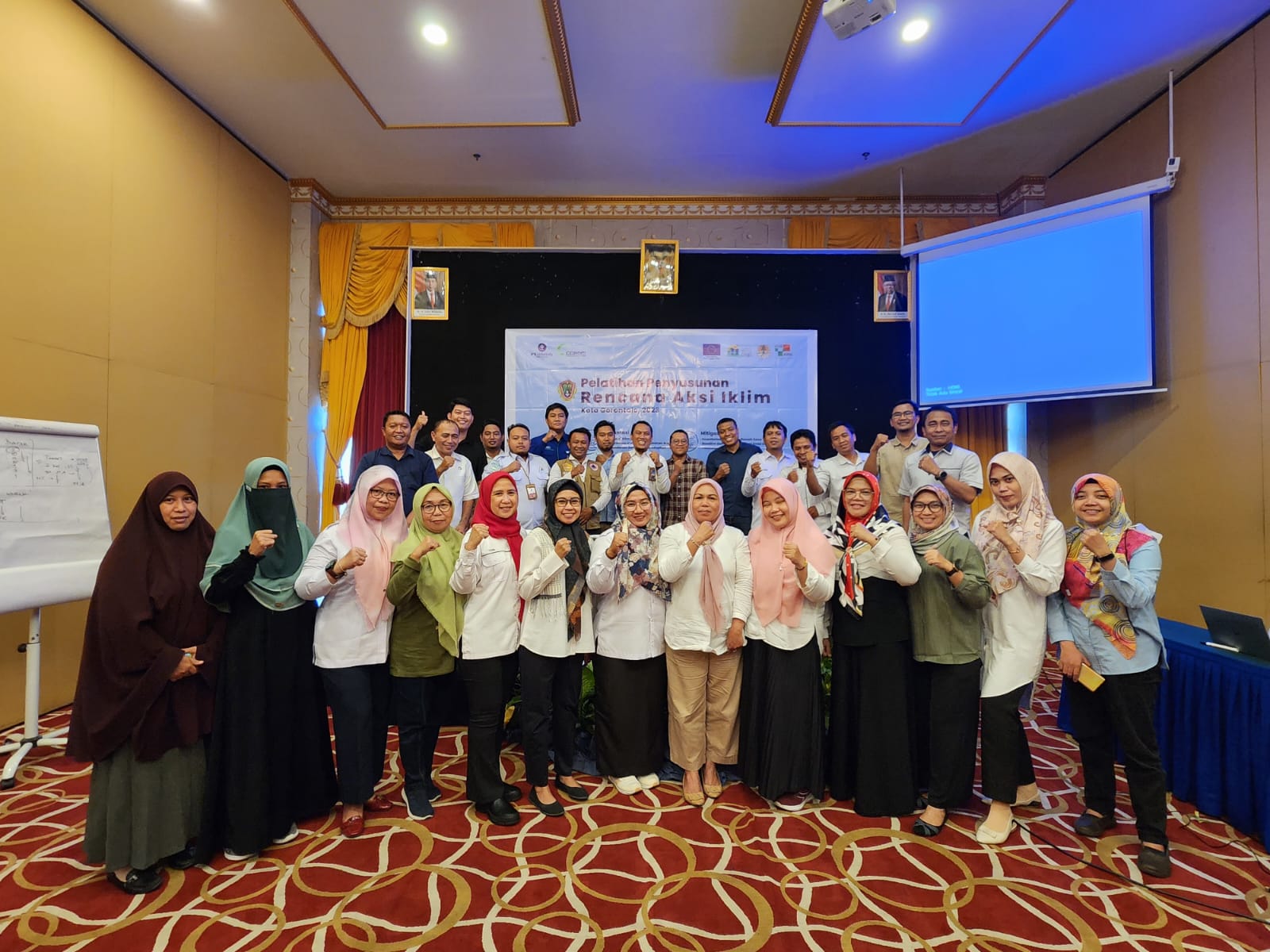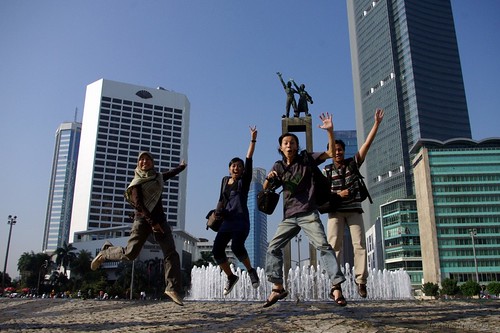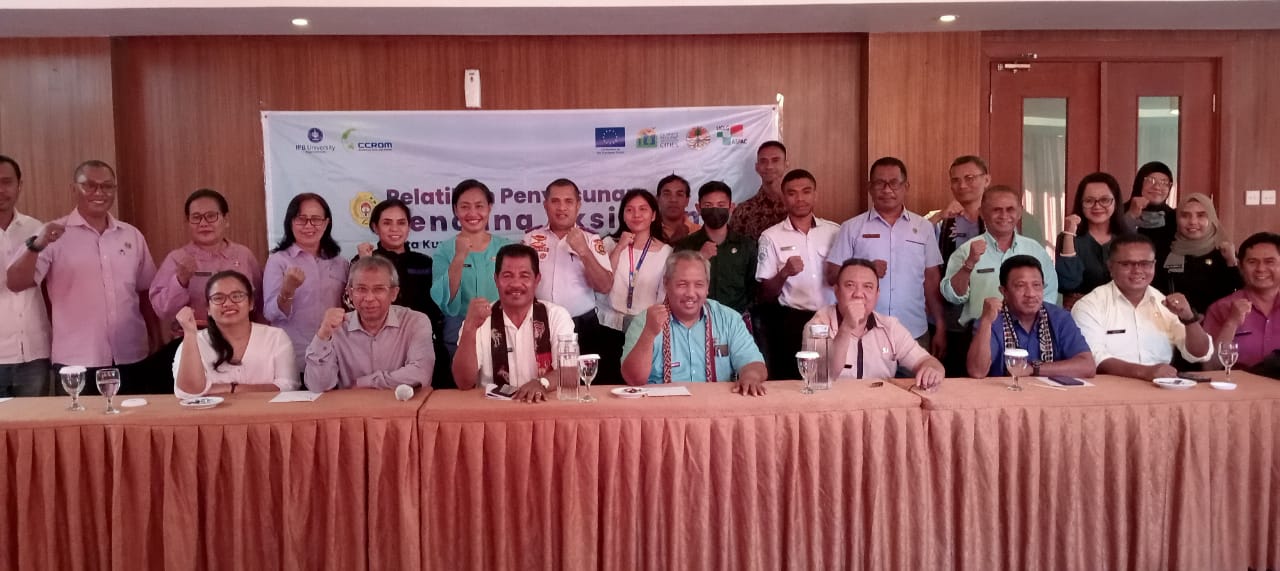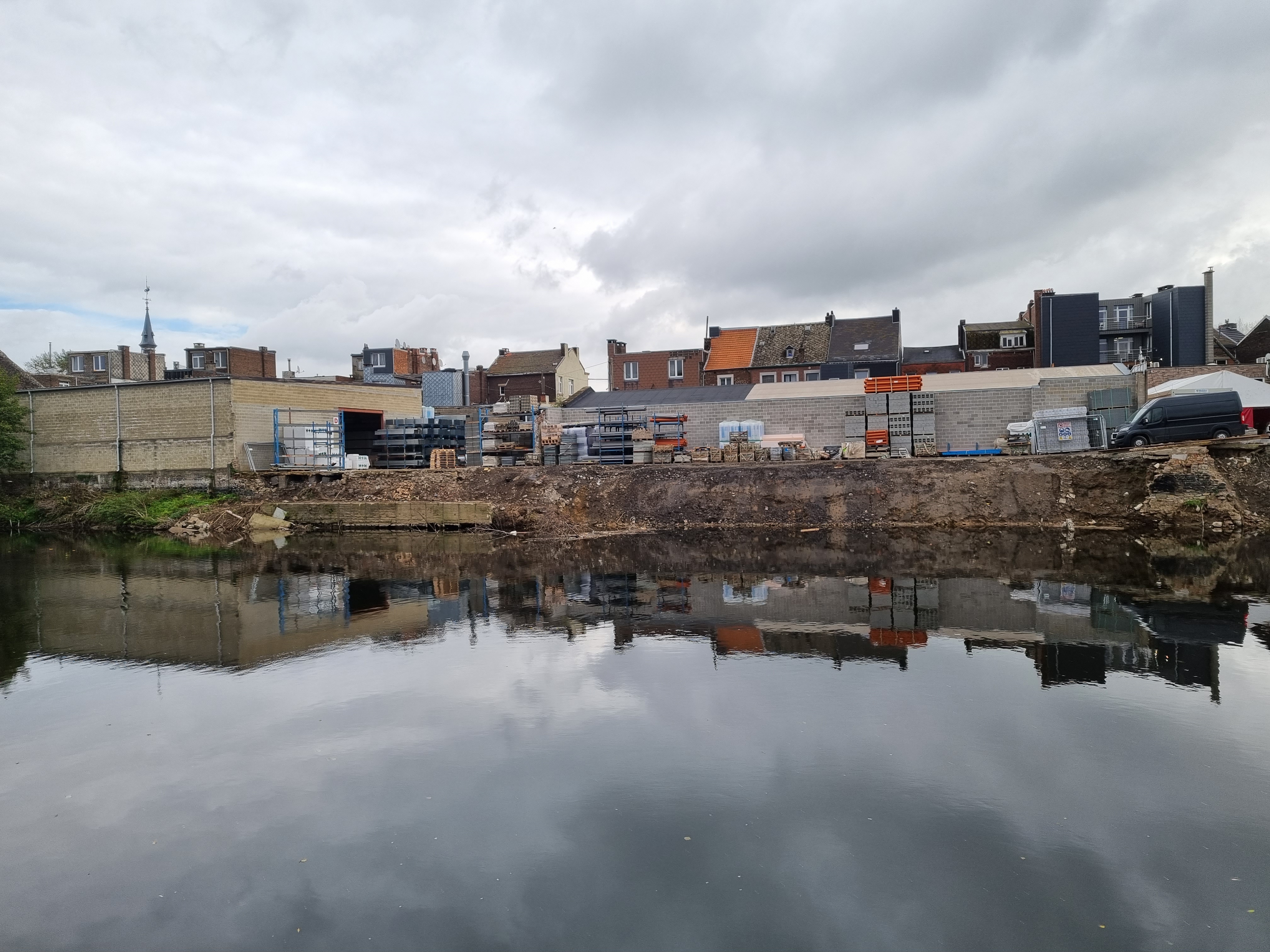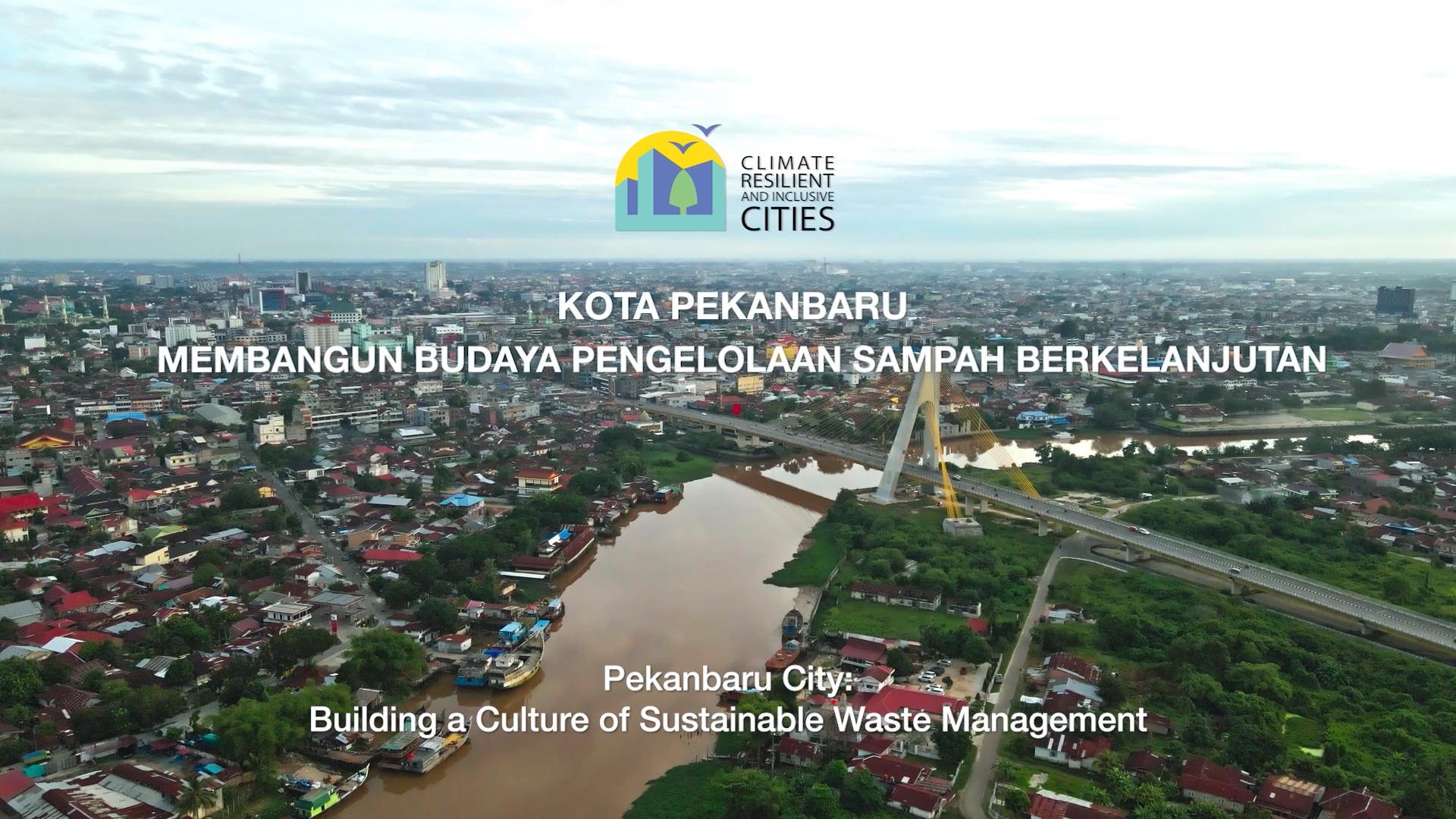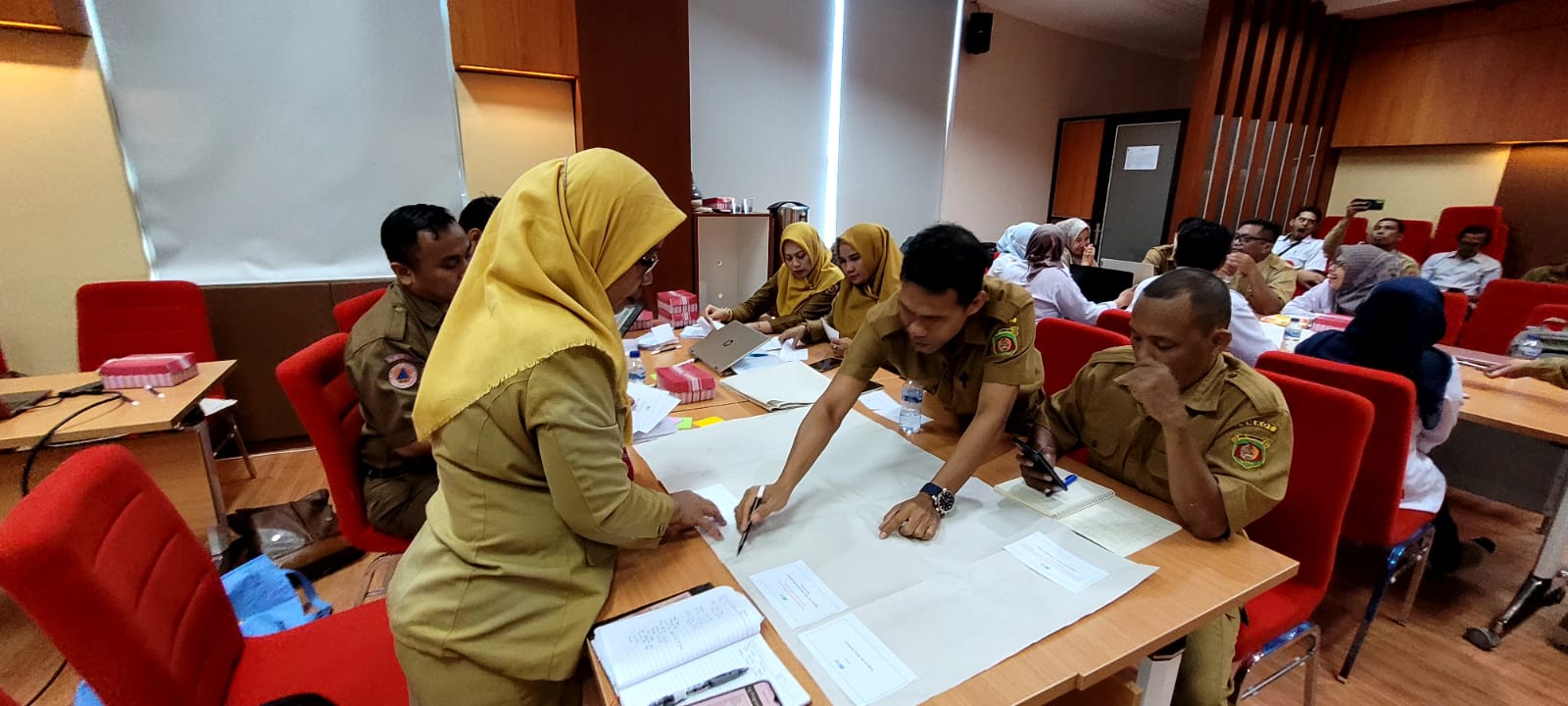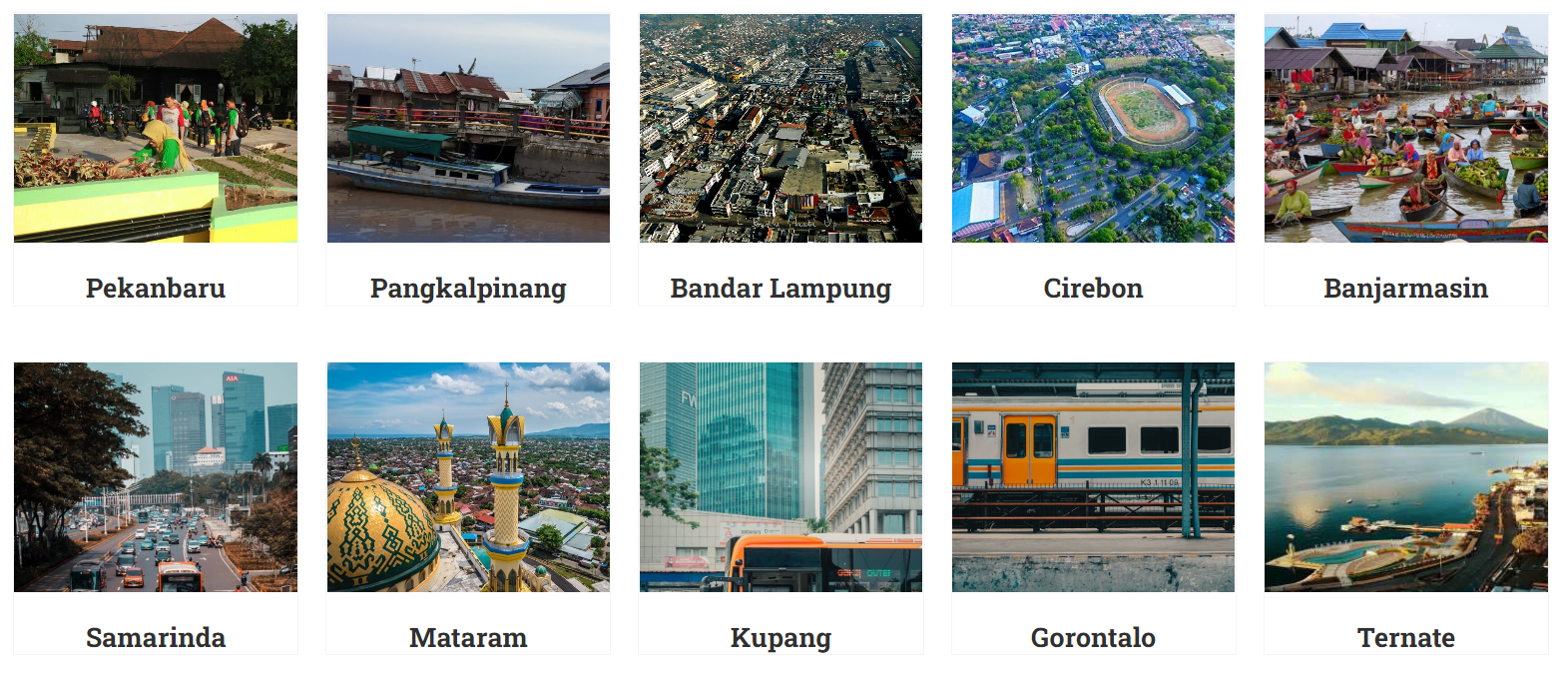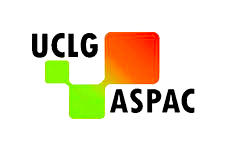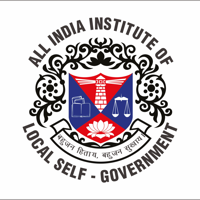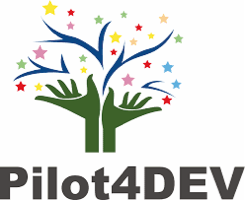The CRIC Project showcased project achievements and implementations at the strategic regional forum on sustainable development.
News
Collaborative Progress: Banjarmasin City’s Climate Mitigation and Adaptation Strategy
Written by: Kesuma Yanti
Banjarmasin City continued its dedicated efforts toward climate change mitigation and adaptation by progressing on the Climate Action Plan (CAP).
Waste Management and Climate Change Top OECD Survey
Written by: Hizbullah Arief
These two most pressing issues: waste management and climate change are also the policy areas most often targeted by city-to-city partnerships.
Launch of EU-Indonesia Cooperation 2024-2025 Report Highlights CRIC Project
Written by: Hizbullah Arief
The report highlighted UCLG ASPAC Climate Resilient and Inclusive Cities (CRIC), as one of the key EU Cooperation projects in Indonesia working in the Environment and Climate Change sector.
Building Back Better in CRIC Pilot Cities
The term Build Back Better was firstly coined in Indonesia following the tsunami that struck Aceh and Nias in 2004. The disaster, which claimed approximately 230,000 lives, including 167,000 in Aceh and Nias alone.
Three CRIC Pilot Cities Win Honours as ‘Urban Resilience Champions’
Three CRIC Pilot Cities, Pekanbaru, Samarinda, and Mataram, have made achievements at the national level by receiving a token of appreciation from the Indonesia Urban Resilience Forum (IURF) for their outstanding contributions to building resilient and sustainable urban environments in their respective regions.
Kupang's Climate Action Plan Gains Momentum with CRIC
On July 2-3, 2024, Rizki Satria, CRIC Project Field Officer, participated in the Kupang Climate Action Plan (CAP) coordination meeting.
CRIC Project Supports Long-Term Planning in Pilot Cities
The Climate Resilient and Inclusive Cities (CRIC) Project is actively supporting pilot cities in integrating climate mitigation and adaptation strategies into their long-term development plans (RPJPD). This initiative aims to guide sustainable growth in CRIC pilot cities of Kupang, Banjarmasin, Ternate, and Gorontalo.
Leaving a Lasting Impact: CRIC Project Accelerates Climate Action Planning in Pilot Cities
Written by: Hizbullah Arief
In its final stages of implementation, the Climate Resilient and Inclusive Cities (CRIC) project reaffirmed its commitment to strengthening collaboration and empowering pilot cities for long-term sustainability through a coordination meeting with partners held on Thursday, 20 June 2024.
Samarinda City Showcases Building Resilient Communities at the 10th World Water Forum
Written by: Kesuma Yanti
Samarinda City, Indonesia, showcased its innovative approaches to disaster risk reduction and management at the 10th World Water Forum, held from 18th to 25th May 2024 in Bali, Indonesia.
Upcoming events
Triangular Cooperation
 The CRIC project is a 5 year project co-funded by the European Union. It proposes a long lasting and unique cooperation through a triangular cooperation between cities and research centres in Europe, South Asia (India, Nepal, Bangladesh), and Southeast Asia (Indonesia, Malaysia, Philippines, Thailand). The Project will also contribute to sustainable integrated urban development, good governance, and climate adaptation/mitigation through long lasting partnerships, and tools such as sustainable local action plans, early warning tools, air quality and waste management in consultation with experts’ panels.
The CRIC project is a 5 year project co-funded by the European Union. It proposes a long lasting and unique cooperation through a triangular cooperation between cities and research centres in Europe, South Asia (India, Nepal, Bangladesh), and Southeast Asia (Indonesia, Malaysia, Philippines, Thailand). The Project will also contribute to sustainable integrated urban development, good governance, and climate adaptation/mitigation through long lasting partnerships, and tools such as sustainable local action plans, early warning tools, air quality and waste management in consultation with experts’ panels.
The target groups of the Project will be local governments, cities, urban stakeholders working on climate resilience, climate mitigation and adaptation, and good governance of inclusive cities. With final beneficiaries including but not limited to local community of the cities/provinces, including women, marginalised sector, civil society, and private sectors.
10 Pilot cities and more…
Blog
Knowledge
To know more about the knowledge
More info

A unique cooperation between cities, officials, civil society organizations, and academics towards resilient and inclusive cities.
Menu
Co-funded by EU

This project is co-funded by the European Union
Contact
Hizbullah Arief
hizbullah.arief@uclg-aspac.org
Pascaline Gaborit
pascaline@pilot4dev.com
